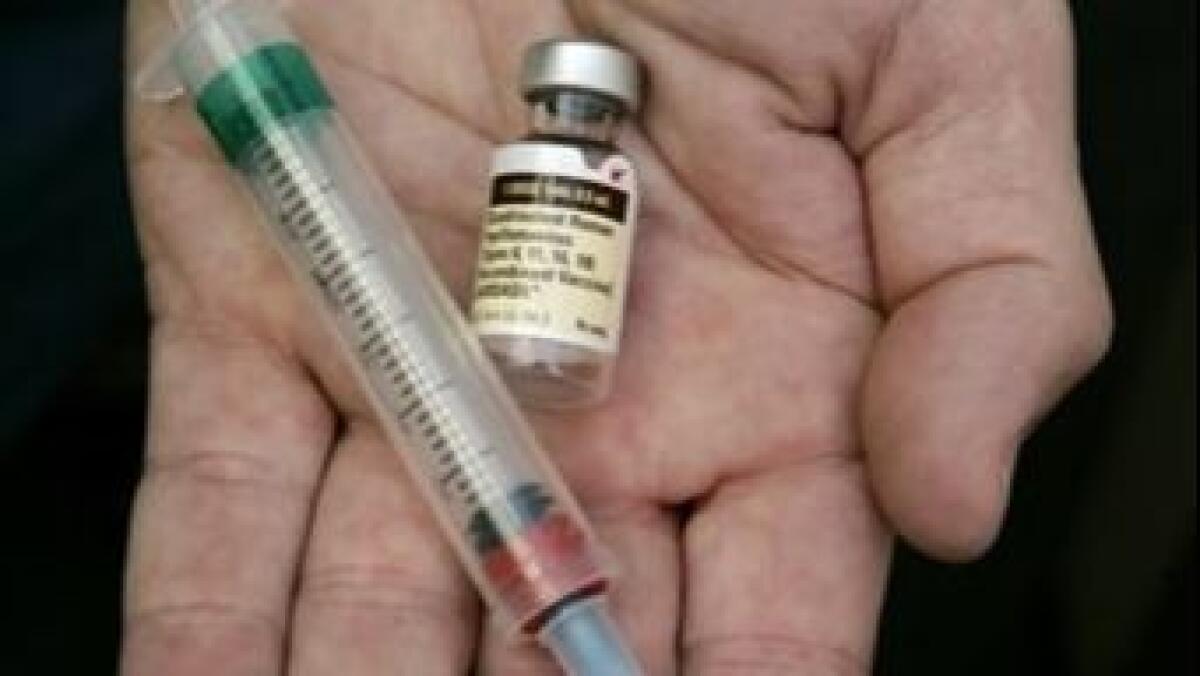Commentary: HPV vaccination and regular Pap screenings can greatly reduce risk of cervical cancer

Many people think eradicating cancer is an unattainable goal. But for cervical cancer, we are well on our way to doing just that.
Cervical cancer was once the leading cause of death in women in the U.S. But we are on the cusp of vanquishing this disease thanks to regular Pap screening and a vaccine that protects women and men from developing the human papilloma virus (HPV), the cause of nearly all cervical cancers.
In fact, over the last 40 years, the number of new cases and deaths from cervical cancers has plummeted. The disease that once claimed the lives of more women than any other disease is now largely preventable.
But an important element to the story of cervical cancer is that it is up to all of us — especially parents of pre-teens — to do the work of prevention.
The U.S. is lagging behind other countries in reducing HPV-related cancers because the most effective time to vaccinate is well before a person becomes sexually active, usually around ages 11 and 12.
Talking about sex with a pre-teen is hard enough; preparing for the fact that one day your child will be a sexually active adult can be terrifying. Pediatricians tell me that many parents believe that vaccinating their children against an STD will somehow encourage sexual behavior. While pediatricians in the community are doing a good job educating parents, the idea of vaccinating against an STD still doesn’t sit well with parents.
What is important to remember is that the vaccine isn’t a license to have sex — it is a protection against a common and sometimes fatal disease later in your child’s life.
Some pediatricians have told me that parents will ask whether their children can wait until they are in their early 20s to be vaccinated. The short answer is, “Please don’t.” Younger children have a more robust immune response. At the age of 9 to 15, children develop higher antibody levels after the vaccine than 16- to 26-year-olds do.
Parents also ask whether boys need to be vaccinated, since they are obviously not at risk of developing cervical cancer. To protect against the spread of HPV, both boys and girls should be vaccinated. Also, HPV increases the risk of cancers that do affect men, including penile, anal and throat cancers.
Even if a woman and her partner have been vaccinated, she can further reduce her risk of developing cervical cancer by undergoing routine pelvic exams, including pap smears. If a pap smear is abnormal, meaning there is some evidence of cancerous or pre-cancerous cells, a gynecologic oncologist, in collaboration with a woman’s gynecologist, can provide the appropriate monitoring or procedure to reduce the likelihood of cervical cancer from developing.
As excellent as cancer treatments are these days, no treatment in the world can outperform prevention. And what we’ve learned from the past 10 years is that the HPV vaccines, if delivered effectively, should be able to eradicate HPV-related diseases completely in our children’s lifetime.
No, we haven’t cured cervical cancer. But with the vaccine, we literally have a shot at preventing it.
Dr. LISA N. ABAID is a board-certified gynecologic oncologist at Hoag Memorial Hospital Presbyterian in Newport Beach.
All the latest on Orange County from Orange County.
Get our free TimesOC newsletter.
You may occasionally receive promotional content from the Daily Pilot.



